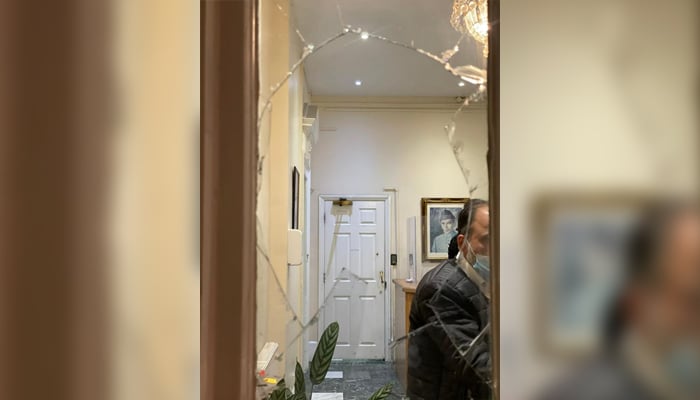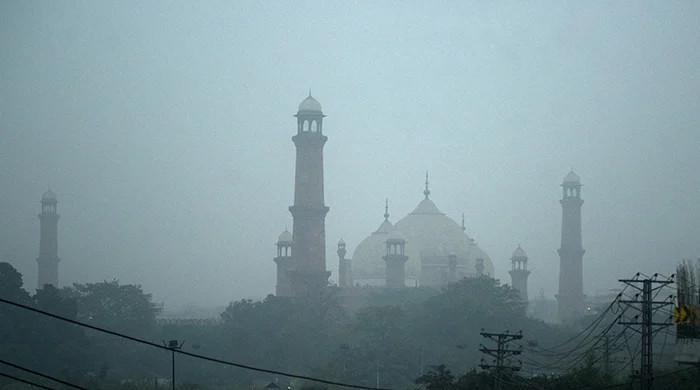London court convicts PTI supporter for attacking Pakistan High Commission after May 9
Chaudhary raised slogans against government, heads of various institutions; broke windowpane in attempt to break in
July 09, 2023

- 51-year-old charged with one count of criminal damage.
- Court orders to compensate Pakistan mission.
- Decision to be strong deterrent in future, says legal expert.
LONDON: A supporter of Pakistan Tehreek-e-Insaf (PTI) has been found guilty by the Westminster Magistrates' Court of criminal damage to the Pakistan High Commission after launching a violent attack on the premises — nine days after the arrest of Imran Khan on May 9 in Islamabad.
Geo News has learned that Aamir Wasim Chaudhary, 51, of Woodlands Lane, Leytonstone, East London, was charged with one count of criminal damage at the building.
The charge and conviction follow Chaudhary's attack on Pakistan High Commission in Knightsbridge at around 22:11hrs on May 18.
Scotland Yard sources have confirmed that it received an emergency call from the Pakistani authorities on the night of May 18 when Chaudhary appeared in front of the commission in London, raised slogans for "Haqeeqi Azadi" and against the government of Pakistan and national institutions, and breached the premises of the mission.
The Crown Prosecution Service has confirmed to Geo News that Chaudhary was prosecuted for one count of criminal damage to Pakistan High Commission property.
He was produced before a judge at the Westminster Magistrates' Court, where he initially denied the charge against him but pleaded guilty to criminal damage when shown the evidence.
While declaring him guilty, the court ordered him to compensate the commission.
Sources said that Chaudhary was raising slogans against the Pakistan government and heads of various institutions; he initially used abusive and threatening language and then broke a windowpane in his attempt to break inside the mission.
It's understood that two staff members were inside the premises at the time of the attack.
According to the sources, the Pakistan High Commission in London brought this incident to the notice of the Met Police, as well as the Foreign Commonwealth and Development Office (FCDO).
The police sources said the police arrived at the scene and arrested the offender.
Following the guilty charge and sentencing of the protester, the Pakistani mission has called on the FCDO to ensure the safety and security of the high commission and its consulates.
Commenting on the case, Barrister Umar Ali, a criminal law expert, said the prosecution of such offences would act as a strong deterrent against any acts of violence against property in the future.
He stated that having a criminal record can have catastrophic impacts on future employment, travel, immigration status and various other aspects of daily life.
He explained, "The offence of criminal damage is when a person intentionally or recklessly causes damage or destruction to someone else's property without lawful excuse.
"The law surrounding criminal damage is governed by the Criminal Damage Act 1971, which outlines the act of criminal damage and sets out the consequences for those found guilty.
"Under the Rehabilitation of Offenders Act 1974, certain convictions and cautions become 'spent' after a period of time. This period of time is known as the rehabilitation period. A fine given to an adult becomes a spent conviction, one year after it was imposed."
Originally published in The News











